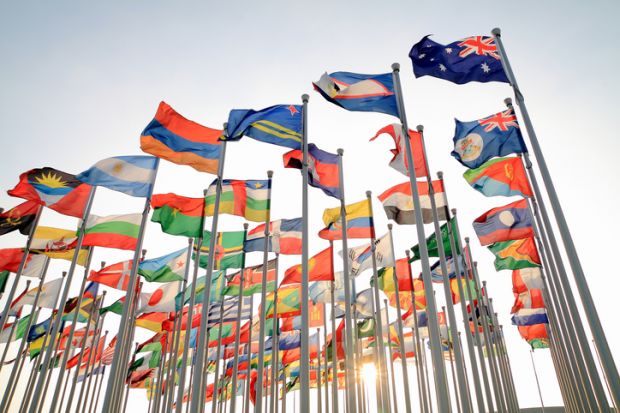As we head into the southern hemisphere’s spring, the rest of the world can still feel as far away from us in Australasia as it must have done at the turn of the 19th century.
We are a corner of the world that continues to be locked down against Covid-19, with only a few people permitted to leave or arrive. Australia closed its borders to all non-residents on 20 March 2020. Since a week later, even returning residents have been required to spend two weeks in supervised quarantine hotels. Melbourne has endured more than 230 days in lockdown – and counting.
It is the same situation in New Zealand. Lockdowns continue here too, and they are imposed with some of the most stringent terms in the world. Meanwhile, managed isolation and quarantine for travellers makes the evening news bulletins every day. Most foreign workers, including academics and international students, are effectively kept out.
Yet it is not only here that the pandemic has been painful. The restrictions on travel have been difficult for universities across the world. Over recent decades, we have all welcomed colleagues from abroad to work with us, in addition to enrolling many international students. As governments have forged country-to-country relationships, universities have developed fruitful people-to-people connections through their research, teaching and participation in higher education networks.
Moreover, the climate change emergency has seen universities develop sustainability policies that aim to reduce aviation emissions from staff and student travel and offset the balance. Suddenly, international travel feels like a luxury we must strictly ration.
So have we passed peak internationalisation? I sincerely hope not. The need for international connections has never been greater. For all of science’s international connectedness, national governments’ responses to Covid-19 have a very insular feel to them, with different countries and even their different regions adopting starkly different approaches. The risk is that insularity becomes governments’ ongoing modus operandi.
This would be unfortunate because international norms and comparisons serve to anchor democracy and limit inequality as much as they advance knowledge. Nation states can become giant echo chambers, as opinions and misinformation bounce off the walls of confirmation bias, fuelling populism and geopolitical tensions.
By contrast, universities’ long-term, sophisticated and rewarding relationships ensure that international people-to-people connectedness continues to flourish, taking the edge off nationalisms. Such global perspectives also allow universities to fulfil a role as the conscience of societies.
Moreover, while the pandemic has showcased the expertise that universities can offer governments, it has also underlined that this expertise is enhanced through researcher-to-researcher and university-to-university collaboration. And such collaborations do not simply emerge from our communities of science overnight. They are founded on years, sometimes decades, of international outlook and outreach.
As institutions steeped in traditions of outward-looking, knowledge-seeking endeavours, universities in Australasia and everywhere else must hold fast to the importance of an international outlook. We must be confident in our belief that the connections we have developed over time serve the interests of our communities and that it is incumbent on us to protect and nurture them.
The value and impact of these international connections are reflected in the metrics underlying Times Higher Education’s World University Rankings, the 2022 iteration of which was released this month. Their inclusion, I hope, reminds governments, industry and our own communities of the need for continuing academic internationalisation despite – indeed, because of – rising global tensions and competition for talent and the innovation and economic growth that comes with it. The international pillar of the rankings serves to hold our feet to the fire and will hopefully discourage us from wavering when it comes to our international outlook.
Australia and New Zealand may be islands, but we have known since John Donne asserted it in 1624 – long before they were colonised by Westerners – that all human beings are “a piece of the continent, a part of the main”. We may still be locked down, but we must not lock ourselves out of the global striving towards progress.
Dawn Freshwater became vice-chancellor of the University of Auckland (joint 137th in THE’s latest World University Rankings) on the eve of New Zealand’s 2020 pandemic lockdown.
Register to continue
Why register?
- Registration is free and only takes a moment
- Once registered, you can read 3 articles a month
- Sign up for our newsletter
Subscribe
Or subscribe for unlimited access to:
- Unlimited access to news, views, insights & reviews
- Digital editions
- Digital access to THE’s university and college rankings analysis
Already registered or a current subscriber? Login









